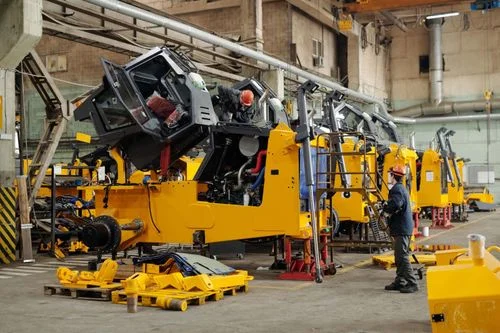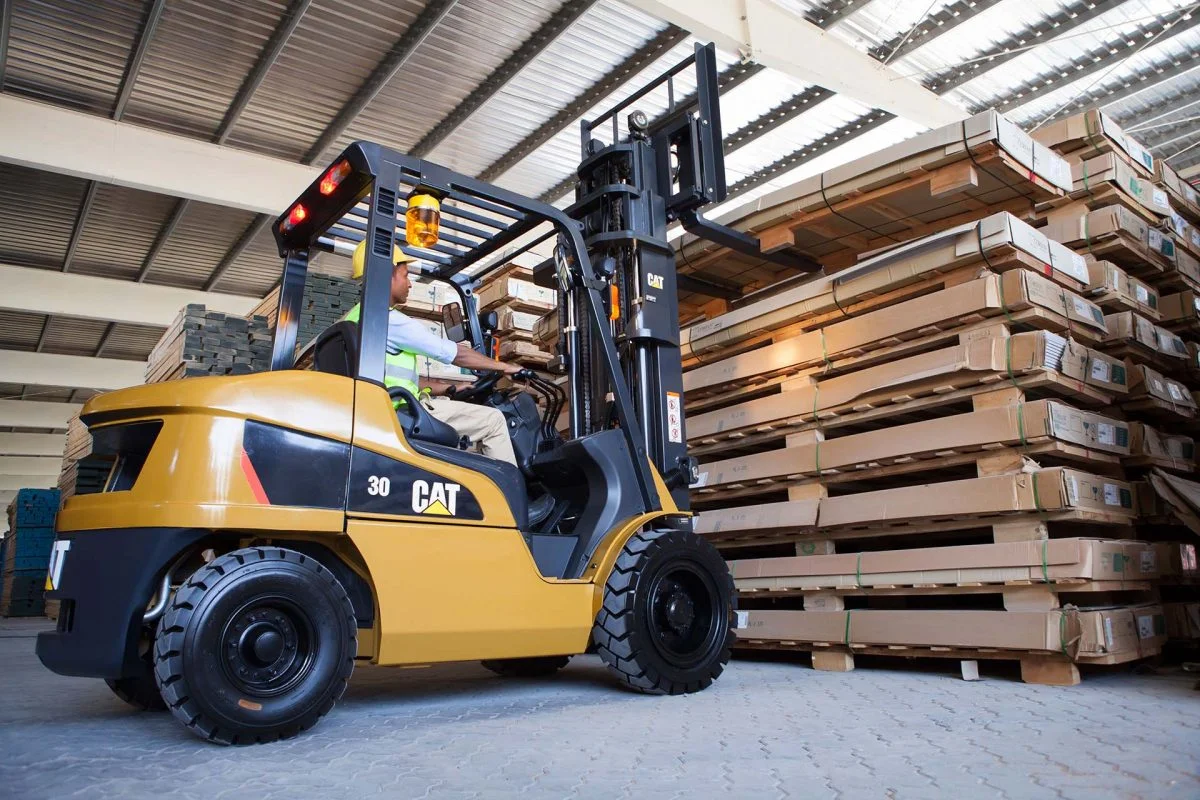Industrial Manufacturing Plants Equipment Repair and Service
Industrial manufacturing plants rely on hydraulic systems to power their machinery and keep production running. From big hydraulic presses to precision robotic arms, these systems provide the power and accuracy for complex manufacturing processes. How do you stop costly downtime and get your equipment back to peak performance when these key components fail to work? Just contact Excellent Hydraulic Works as we do hydraulic equipment repair service, maintenance and system optimisation. We know industrial hydraulics and will keep your machinery in top nick. Whether it is troubleshooting a faulty hydraulic pump or replacing worn out seals, we provide fast reliable service to minimise downtime. Our team will deliver bespoke solutions to get your plant running safely, smoothly and productively.
Hydraulic Machinery Used in Industrial Manufacturing Plants


Injection Moulding Machines Injection moulding machines use hydraulics to inject material into moulds. They use screw pumps because they can handle high viscosity fluids and give precise control of the injection process.
Conveyor Systems Hydraulic powered conveyor systems move materials around the manufacturing facility. Gear pumps are used in these systems because they are simple and reliable and give steady flow rates for consistent material handling.
Hydraulic Shears and Cutters Used for cutting and shearing material, these machines use vane pumps. These hydraulic pumps are smooth and can maintain constant pressure which is critical for clean cuts.
Hydraulic Lifting Equipment Forklifts and hoists use hydraulics to lift heavy loads. These machines use Axial piston pumps to create high pressure and efficiency so that in operation they can lift materials safely and effectively.
Extrusion Machines Extrusion machines that shape material by forcing it through a die use screw pumps. These pumps handle the continuous flow of high viscosity material so the extrusion process is consistent.
Hydraulic Rolling Mills In rolling mills hydraulics control the pressure on metal sheets. Radial piston pumps are used for high pressure so you can control the thickness during rolling.
Hydraulic Press In Industrial manufacturing plants hydraulic presses are used for metal forming, stamping, and molding processes. With the use of piston pumps they generate the necessary force for shaping materials.
Die Casting Machines Die casting machines Inject molten metal into moulds under high pressure. They use plunger pumps to deliver the force to fill the mould completely and get high quality castings.
Hydraulic Clamping Systems These systems hold workpieces in place during machining or assembly. Hydrostatic pumps are used because they can maintain constant pressure without pulsation.
Robotic Arms with Hydraulic Actuators Robotic arms with hydraulic actuators do tasks that require high force and precision. Servo controlled pumps are used to control movement so the robotic arms can do complex tasks accurately.
Common Hydraulic Challenges in Industrial Manufacturing Plants
Liquid Contamination Contaminated hydraulic fluid is the number one cause of system failure. Particles, water or air in the fluid can cause component wear, corrosion and reduced efficiency. Regular fluid analysis and filtration are key to keeping the fluid clean and preventing contamination related problems.
Wear and Tear When the machines run continuously then the chances of hydraulic components wear and tear are so high. Seals will degrade, pumps will lose efficiency, valves will stick or leak. So having a maintenance schedule will help you detect and replace worn parts before they fail.
Leaks Leaks reduce system efficiency and are environmental and safety hazards. Leaks come from damaged seals, loose fittings or worn out parts. Regular inspections and prompt repairs are necessary to identify and fix leaks to maintain system integrity and safety.
Pressure Fluctuations Inconsistent hydraulic pressure causes erratic machine performance and product quality. Pressure fluctuations come from pump inefficiencies, clogged filters or air in the system. Regular monitoring and maintenance of pressure regulators, filters and pumps are necessary to maintain system pressure.
Cavitation When air bubbles form in the hydraulic fluid is called cavitation. It leads to noise, vibration and damage to the components. Caused by low fluid levels, clogged filters or high pump speeds. So if you keep fluid levels correct, clean filters and operate within recommended parameters then you can prevent cavitation.
Overheating It is common for hydraulic systems to generate heat. However, the excessive temperature can break down hydraulic oil, reduce lubrication and increase component wear. Overheating is caused by high pressure, fluid contamination or inadequate cooling. You need to monitor system temps and keep the cooling system correct to mitigate overheating.
Inadequate Maintenance Practices Not doing regular maintenance can make all the above worse. Having a maintenance program that includes regular inspections, timely component replacement and following operational guidelines is highly recommended for the longevity and reliability of hydraulic systems.
Our Comprehensive Industrial Manufacturing Plant Hydraulic Services
Hydraulic Pump and Motor Repair Our hydraulic motor technician experts are knowledgeable in repairing all types of hydraulic pumps and motors, pistons, gears, vanes and screws. We use modern diagnostic tools to find the problem and precision repair techniques to get the hydraulic component back to a new condition.
Preventive Maintenance Programs We develop a custom preventive maintenance schedule for your equipment and operation. Maintenance activities include fluid analysis, filter changes, system diagnostics and performance testing to find and address problems before they become major problems.
System Upgrades and Retrofits To stay up to date with technology we offer system upgrades and retrofits. This includes adding new components, upgrading control systems and energy efficiency so your hydraulic systems meet current industry standards and operational requirements.
Emergency Repair We know equipment failures can happen at any time so we offer 24/7 emergency repair services. Our rapid response team can get to you quick and get you back up and running asap.
Component Replacement and Rebuild When components reach the end of their life we offer replacement and rebuilding services. We use high quality parts to ensure rebuilt components meet or exceed original specs, extending the life of your equipment and performance.
Technical Support and Training We offer technical support to help with troubleshooting and system optimisation. We also offer training for your maintenance personnel so they have the knowledge and skills to do routine maintenance and identify potential issues early.
